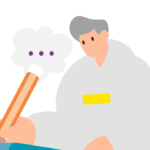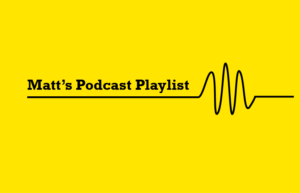CP+R Sciencecast | Edition #148
Wednesday 3rd January 2024
Behaviour
change

Last week we touched on how to set effective goals, and how to break them down into skills and practices so you can control the process instead of getting transfixed on the outcome. Remember, changing behaviour is hard and a tiny change in behaviour will not transform your life overnight. But turn that behaviour into a habit that you perform every day and it absolutely can lead to big changes.
“First you make your habits, then your habits make you”

The two foremost experts in habit formation are BJ Fogg and James Clear. Links to a podcast from each of them are available below.
Here too are some key outtakes from their work:
How to effect long-term behavioural change:
1. Motivation – how much do you want it?
+ The desire to do something e.g. get fitter, lose weight, learn a new skill.
+ Motivation waves (an uncontrollable factor) – when you first start something, like a health kick this Jan, motivation is high. So, if a habit is tough to stick to even then, there’s no chance you’ll do it when the motivation wave is low.
+ Try and set things you can do even when motivation is low.
2. Ability – how easy is it?
+ Can you actually do it e.g. complete the CV session?
+ Make it as easy as possible by setting the bar really low.
+ Scale it back and make it tiny.
+ Remove as many barriers as possible e.g. having a running kit ready or doing CV in a 90 min session at the end of your resistance session.
+ Or if you’re struggling to do your perfect 40 min CV, session aim for a 5 min walk instead.
+ Then, take baby steps and feel the momentum build.
+ Further down the line, don’t keep changing the bar higher and higher. Let it happen naturally.
3. Trigger – what prompts you?
+ The thing that prompts the behaviour e.g. after my morning coffee, I will do my glute stretches.
+ Try and stack it after an existing habit – 56% of what we do is habit so, tack it onto an existing habit for a springboard.
+ E.g. after I put the kettle on the boil, I will go for a 5 min walk.
+ Think about where is best to put it in the day. Often, this can be in the morning before the day takes hold.
4. Celebrate – you did it!
+ Make yourself feel good for succeeding. “Emotions create habits, not repetition”.
+ You could celebrate your walk by having a coffee once you’ve done it, or celebrating with your coach or friend when you perform a good behaviour.

“The 4 Steps To Make Habits Stick | James Clear”
from Feel Better, Live More with Dr Rangan Chatterjee
“Tiny Steps: BJ Fogg”
from Wisdom From The Top with Guy Raz
2. Behaviour change is a skill
+ Be in no doubt about this! So, design your systems to help you achieve that skill, which is something we covered in last week’s Sciencecast.
3. Choose your key habits to focus on
+ Set the goal but break it down into a list of habits, then choose just 2-3 habits to focus on at a time (again, something we touched on last week!).
So there you go, some simple tips from the world leading experts in behaviour change to help you live longer, better in 2024. I’ll leave you with this quote:

